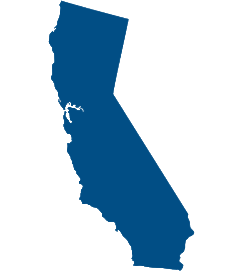
California Mandatory Recycling Laws
The following laws are designed to reduce landfill waste, lower greenhouse gas emissions, and promote sustainability across the state. Compliance is generally monitored and enforced by local jurisdictions, with the ultimate goal of creating a more sustainable and environmentally friendly California.
AB341: Mandatory Commercial Recycling (2012)
Overview:
- This law requires businesses and multifamily residential dwellings (with five or more units) to arrange for recycling services.
- The goal is to reduce greenhouse gas emissions by diverting commercial solid waste from landfills.
Important Dates:
- Effective Date: July 1, 2012
Key Points:
- Businesses and multifamily residential complexes generating four cubic yards or more of commercial solid waste per week must recycle.
- Local jurisdictions are responsible for informing businesses about recycling requirements and tracking progress.
AB 1826: Mandatory Commercial Organics Recycling (2016)
Overview:
- This law requires businesses to recycle their organic waste (like food scraps, yard trimmings, and non-hazardous wood waste).
Important Dates:
- April 1, 2016: Businesses generating 8 cubic yards of organic waste per week must recycle.
- January 1, 2017: Businesses generating 4 cubic yards of organic waste per week must recycle.
- January 1, 2019: Businesses generating 4 cubic yards or more of commercial solid waste per week must recycle organic waste.
- September 1, 2020: Local jurisdictions must implement programs to recycle organic waste from businesses.
Key Points:
- The thresholds gradually decrease over time to include more businesses.
- By 2025, the goal is to reduce organic waste disposal by 75% and to rescue at least 20% of edible food for human consumption.
SB 1383: Short-Lived Climate Pollutants (2020 and beyond)
Overview:
- This law focuses on reducing methane emissions through comprehensive organic waste recycling and edible food recovery.
- It sets more ambitious statewide goals for organic waste reduction.
Important Dates:
- January 1, 2022: Local jurisdictions must have organic waste collection programs in place for all residents and businesses.
- January 1, 2024: Local jurisdictions must begin enforcing compliance.
Key Points:
- This law includes all residents and businesses, making it the most comprehensive of the three.
- Local jurisdictions must also work to recover 20% of edible food for human consumption that would otherwise be disposed of.
